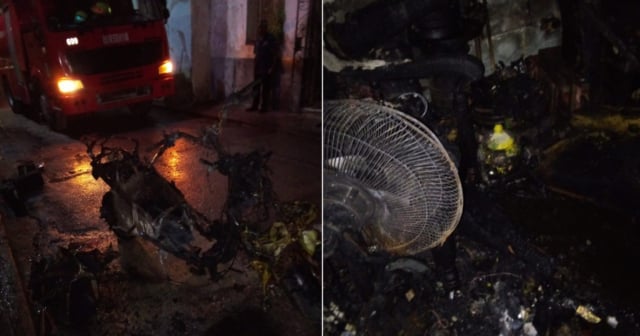Enrique Díaz Rodríguez, a reporter for the independent media outlet Cubanet, is stranded at Jorge Chávez Airport in Lima, Peru, with his family after fleeing Cuba due to harassment from State Security.
Among Díaz Rodríguez's companions are his wife, a human rights activist, his 18-year-old son, his daughter, her husband, and their three-year-old son.
According to reports on social media and by human rights organizations, Díaz fled Cuba in search of starting the Central American journey to the United States. However, the denial of entry into Nicaragua, whose government is very close to the regime in Havana, prevented the trip from taking place, and he now fears being sent back to Cuba.
According to Cubanet, in recent months, the harassment by State Security also involved her 18-year-old son, particularly due to the young man's refusal to enter military service.
"He has always said that he would not serve under a regime that has mistreated his father and family. I fully understood and supported him. Then, the Security forces gave me the option to face the consequences or leave the country," Díaz Rodríguez stated from a room in a Peruvian airport to the independent media.
The reporter noted that the departure from Havana airport was smooth. In fact, he mentioned that State Security agents were present to ensure there were no issues.
But this happened when they attempted to board their next flight to El Salvador. Upon arriving in Peru on a LATAM flight for a temporary layover, they inquired with Avianca about their upcoming flight, and were informed that Nicaragua did not allow any of them entry.
Peruvian media have also reported on the situation, stating that from the Lima airport, the reporter requested asylum in Peru to avoid deportation, a request that he claims was denied by immigration authorities.
The Press and Society Institute (IPYS) has expressed its concern regarding the case of the Cuban individual and his family, considering his return to Cuba a danger due to the reprisals he has already faced on the island.
They have even sought the intervention of the Special Rapporteur for Freedom of Expression of the Organization of American States (OAS) and other international organizations to advocate for the protection of Cubans and help them find a safe destination that offers asylum.
What do you think?
COMMENTFiled under:
